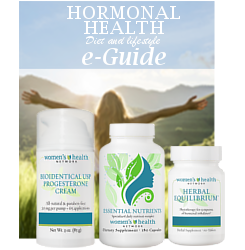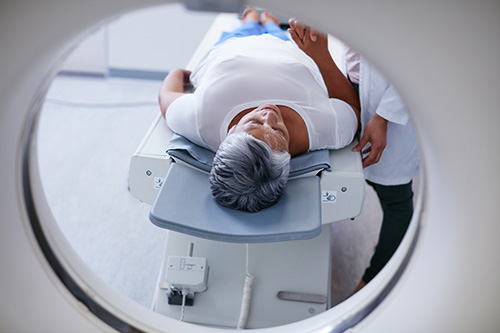How do I recover post-hysterectomy?
If you have had a complete hysterectomy, this will trigger what is known as “surgical menopause.” To ease this transition, many women will be advised to use short-term estrogen directly following surgery, then to wean off it in a few months.

Depending on the severity and nature of a woman’s menopausal symptoms, we usually recommend a bioidentical estradiol patch and phytotherapy like our Herbal Equilibrium, combined with natural support measures such as a healthy diet and a high-grade multivitamin. All forms of hormone replacement are optional, however, and you may choose to wait and see how you feel.
If you’ve had a complete hysterectomy at a young age, we usually recommend supplementation with bioidentical estrogen until you are 45–50, when levels would normally begin to decline. (There is no exact time to stop; it depends on how you’re doing.) Since your uterus has been removed, you do not need prescription-strength progesterone to offset the estrogen, but a low-dose progesterone cream may be a helpful addition. Remember, the goal is for estrogen and progesterone to be always in balance.
Removal of the ovaries doubles a woman’s odds for suffering low testosterone, with its adverse effects on libido and sexual enjoyment. Some women’s bodies adapt and increase testosterone production in other areas, such as the adrenal glands, but this adaptation can take time. This is another reason why a good overall support program is vital.
After a partial hysterectomy, some women won’t feel any changes, while others immediately experience severe menopausal symptoms. For a minority of women these symptoms are transient. Rarely, permanent ovarian failure can occur, resulting in premature menopause.
For all women post-surgery, the addition of soy to the diet can be very helpful, but you will need 80–100 mg of soy isoflavones per day to get a therapeutic effect. The phytoestrogens in soy help offset the loss of estrogen and support hormonal balance.
If you have access to a practitioner with expertise in compounded bioidentical hormones, you can have your hormone levels evaluated, including androgen levels and estrogen metabolism markers, then build an individualized regime of compounded hormones.
< Back to hysterectomy FAQ’s.
Relieve your hormonal
imbalance symptoms today
- For perimenopause and menopause symptoms
- Natural and easy-to-take
- Satisfaction always guaranteed











